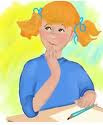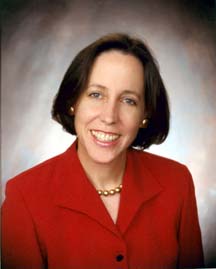While it's true that I've always been a night owl who stays up till two or three a.m. reading, surfing the net, and eating figs on water crackers. I now have a legitimate, literary, career related excuse for being up that late every night. You see, Betsy Bird doesn't post her daily Fuse #8 blog until the wee hours, and I can't go to bed until I've read her latest.
This is especially true when she writes a bang-up entry like this one about old children's books that NEED to be brought back into print.
And then there was today's piece about "books that might be able to earn an entirely new audience and appreciation if they just acquired a new look."
can see her point about this book needing a new cover illustration. But I think I can trump CHANGELING SEA when it comes to naming The Patricia A. McKillip Book Most Needed Back in Print -- Minus the Offputting Illustrations.I give you THE NIGHT GIFT.
Patrica A. McKillip was one of several amazing YA authors who debuted in the 1970s with a novel set in Great Britain. In addition to McKillip's THE HOUSE ON PARCHMENT STREET, there was William Sleator's BLACKBRIAR, Nancy Bond's A STRING IN THE HARP, and several others. Unsuspecting readers probably assumed these were old school British authors whose work was finally being published in the U.S. But it turns out that McKillip and the rest were all young American writers, so confident in their talent that they set their first novels in the traditional world of English and Welsh fantasy. Patricia McKillip would go on to write a number of highly-regarded fantasy and science fiction books whose titles I can't pronounce, including THE THROME OF THE ERRIL OF SHERILL, SONG FOR THE BASILISK, and THE BOOK OF ATRIX WOLFE.
But the McKillip book I like best is one of her least known -- a realistic problem novel set in California -- published early in her career (1976) and now long out-of-print.
THE NIGHT GIFT concerns a trio of high school freshman -- narrator Joslyn and her friends Barbara and Claudia -- who decide to create a unique gift for Barbara's older brother Joe.
Last fall, just after school started, [Joe] had been standing in front of a window in his room, just looking out at the rain. Mrs. Takaota had asked him if he had any dirty laundry. For a moment he hadn't said anything. Then he said, "It's so ugly," and pushed his hands through the glass. Since then he had been in a hospital, and Barbara had only seen him once.
Now, with Joe about to return home, the girls discover a local abandoned house and enlist the aid of a couple boys (which also leads to some awkward romantic situations) in turning one of the house's empty rooms into a special place for Joe -- "a place for him, just for him, where he could go when he was depressed, that was so beautiful, that just being in it would make him happy." It's an engaging premise, and one that leads to moments of growth and self-discovery for the trio of friends as they sneak out night after night to clean the dirty, abandoned house and decorate it with wind chimes, seashells, murals, plants, banners, and books. What makes the book so memorable are its well-rounded characterizations, its realistic depiction of mental illness and depression, and its uncompromising, yet still slightly hopeful, conclusion.
The only thing wrong with this novel are its primitive, almost amateurish illustrations. It should be noted that the illustrator is named Kathy McKillip -- almost surely a relative of Patricia -- and while her contributions may have had great personal meaning to the author, they ultimately drag down the overall quality of the volume.
Both the general style of the drawings, not to mention the styles depicted within the drawings (check out those bellbottoms!) are now dated.

And notice how one character is turned away? We see so many backs-of-heads in these illustrations that one wonders if the artist simply had trouble drawing faces:

Here's one with more averted/covered faces, as well as Those Jeans again:

The purpose of this blog isn't to slam the artwork. There are probably other 1970s books with illustrations of similar average quality. But times have changed and we are used to a more sophisticated style these days. In fact, it would be very rare for a contemporary book about high school freshmen to include any illustrations at all.
THE NIGHT GIFT gets my vote as a book that deserves to be back in print, either with updated artwork or no illustrations whatsoever. Like the abandoned house its characters renovate after dark...or Fuse #8's blog which appears online long past midnight...this quietly-affecting Patricia McKillip novel is a gift to readers that's worth staying up late at night to read.
Source :
http://collectingchildrensbooks.blogspot.com







